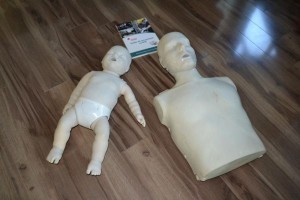Listeriosis is a type of food poisoning that is
caused by consuming foods that are contaminated with the bacterium Listeria monocytogenes. This bacteria is particularly dangerous once present in food because it is capable of surviving in the cold, even freezing, temperatures of the refrigerator. However, it can be killed by adequate cooking and pasteurization.
Causes of Listeriosis
The bacteria Listeria monocytogenes can be commonly found in soil, water and animal feces. The following are common sources of listeriosis infection in humans:
- Eating vegetables that become contaminated from the soil or from manure used as fertilizer
- Consuming animals and that carry the bacteria may contaminate their meat and other products
- Eating process foods, such as soft cheeses, cold cuts, and hot dogs, that become contaminated after processing
- Consuming unpasteurized milk or foods made from unpasteurized milk can cause contamination
Risk Factors for Listeriosis
Listeriosis affects thousands of people each year. Although anyone can get this infection, there are certain groups of people that are more susceptible to listeriosis infection that can easily turn very serious. These include:
- Pregnant women (and consequently their unborn babies via the placenta)
- Newborn
- Elderly
- Individuals with weak immune system or with chronic diseases
Signs and Symptoms of Listeriosis
Unlike many food poisoning causing bacteria, Listeria monocytogenes can have a long incubation period, which can range from three to 70 days. The infection itself can last from days to weeks. The following are the common signs and symptoms of listeriosis:
- Nausea and vomiting, sometimes preceded by diarrhoea
- Fever
- Stiff neck
- Muscle ache
- Headache*
- Loss of balance*
- Weakness*
- Confusion*
- In some cases, convulsion*
*These symptoms normally appear when listeriosis spreads to the nervous system of the individual
First Aid Management for Listeriosis
Most healthy individuals with mild symptoms would not require treatment as the symptoms will typically disappear on their own. However, for any individual mentioned in the risk factors, treatment is required, most especially for pregnant women to avoid spreading the infection to the unborn child. The following is usually done in cases of a listeriosis infection:
- Antibiotics should be taken as prescribed by the doctor. Mention any special considerations that need to be addressed, such as pregnancy.
- Take plenty of rest.
- Drink eight to ten glasses of clear fluids, preferably water. Every time there is a loose bowel movement, drink at least one cup of liquid.
- Instead of eating three big meals, eat small meals instead.
- Ask the doctor before taking other medications

Disclaimer: This article does not provide medical advice and should not be substituted for formal training. The information given should not be used for self-diagnosis. Seek medical attention when necessary. It is important to recognise potential medical emergencies at all times to avoid complications from developing. To learn more about how to manage Staphylococcal food poisoning, enrol in First Aid Courses and CPR Courses with Red Cross Training.
Online Sources:
http://www.foodsafety.gov/poisoning/causes/bacteriaviruses/listeria/
http://www.mayoclinic.com/health/listeria-infection/DS00963
http://www.webmd.com/a-to-z-guides/listeriosis-topic-overview

